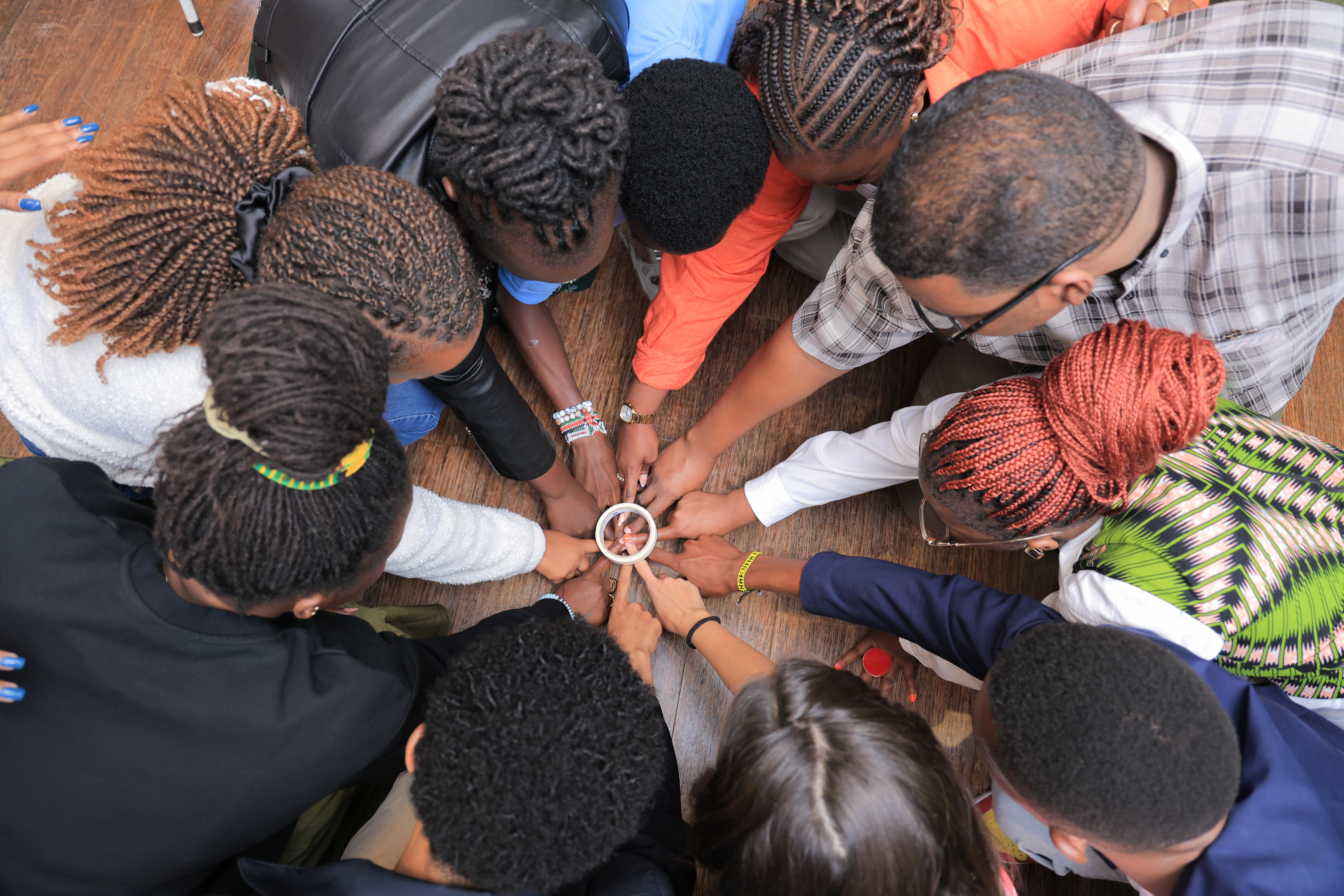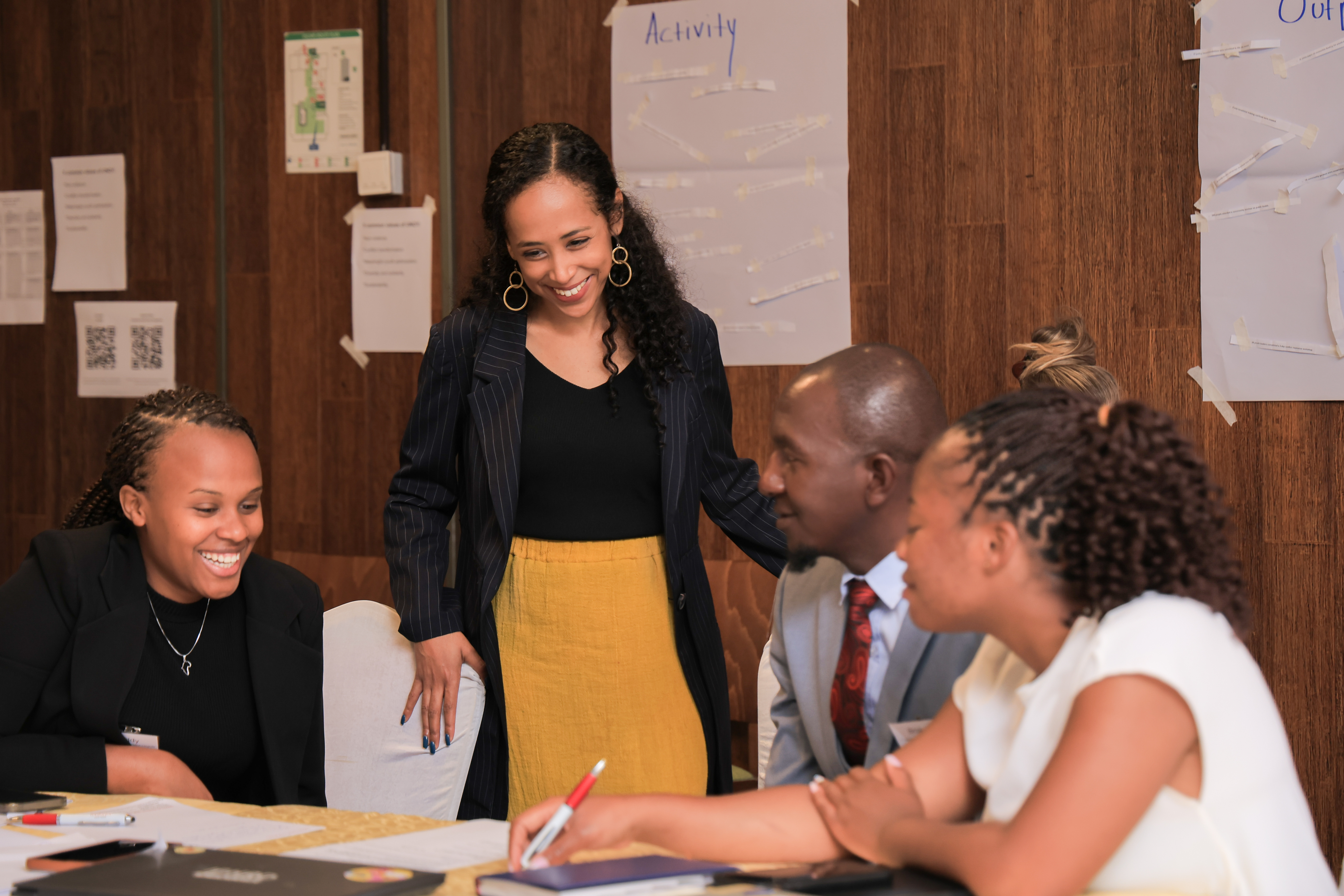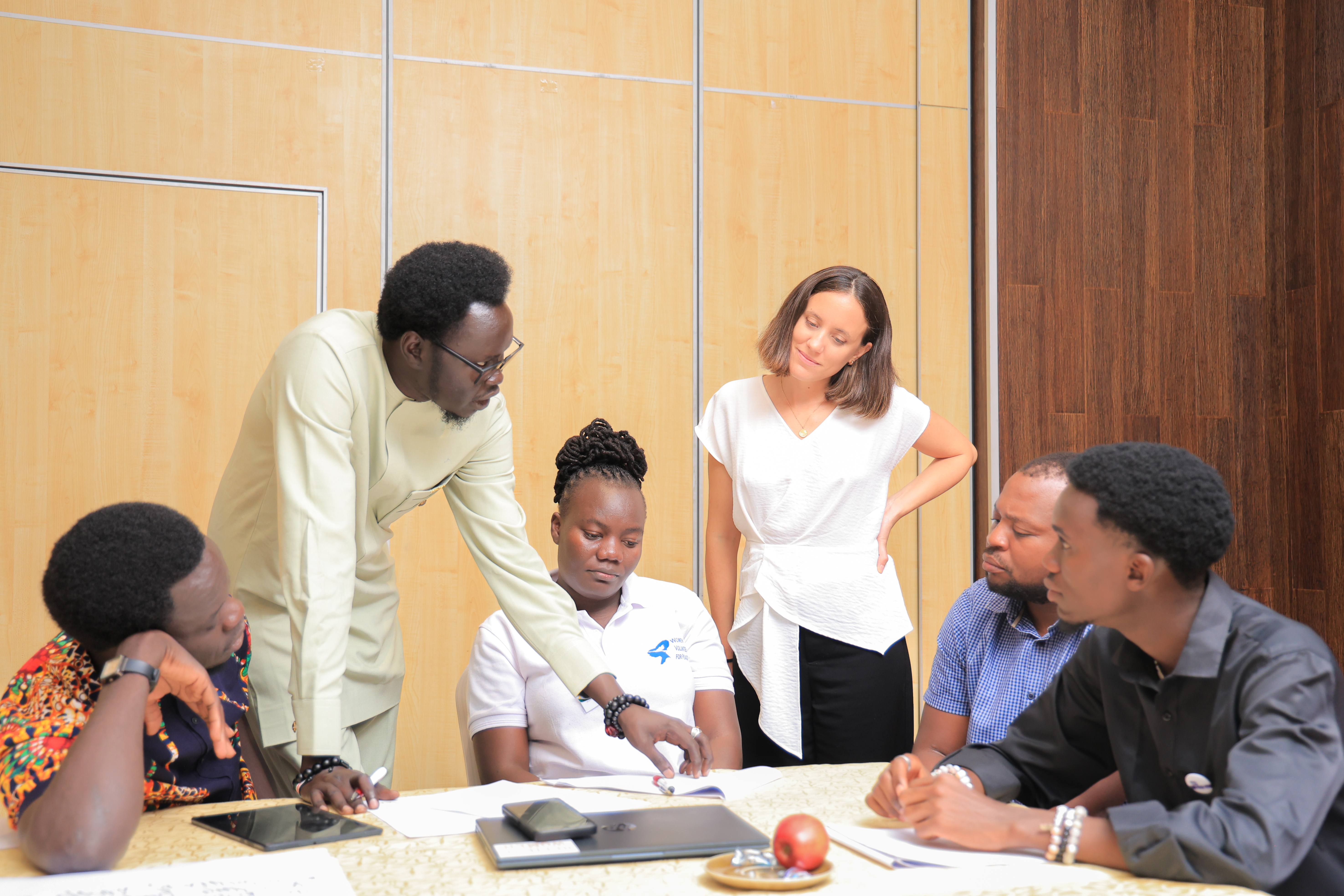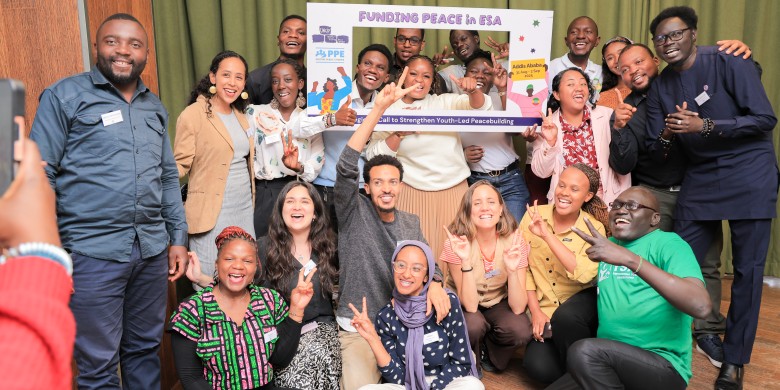
Funding Peace in Eastern and Southern Africa
UNOY Regional Activity in ESA, 31st August - 2nd September 2025
Written by Ahlam Bogale and Julia Landers
From August 31st to September 2nd, 2025 young peacebuilders from across Eastern and Southern Africa (ESA) came together in Addis Ababa (Ethiopia) not to just talk about peace but to learn how to fund and sustain it.
The ESA Regional Activity was a Training on Fundraising for Peace hosted by Positive Peace Ethiopia (PPE) in partnership with the United Network of Young Peacebuilders (UNOY) both proud members of CSPPS, and facilitated by Ethiopis Tadesse, a certified trainer and communication specialist. It was funded by the Irish Ministry of Foreign Affairs and co-funded by the European Commission, and brought together 15 young leaders in Addis to address one of their greatest challenges: how to fund the change they are leading.
Why Fundraising?
According to the 2024 UNOY membership survey, 83% of ESA members identified fundraising as their primary obstacle. The region reported the lowest grant application success rate (24%) and the lowest sense of financial sustainability (rated 2.13/5), underscoring a critical gap in resources that limits the impact and sustainability of youth-led initiatives in the region.
Fundraising continues to be one of the most difficult aspects of maintaining the work of many youth-led organisations all over the world. Strong ideas frequently fail to gain traction due to complicated and long application procedures, restricted donor access, limiting donor requirements, and language barriers, to name a few.
The training was therefore organised to equip young peacebuilders with the necessary tools and knowledge to effectively mobilise resources for their peacebuilding initiatives in the region. Among its objectives, the training aimed to facilitate peer learning and exchange of best practices in fundraising and partnership building; to enhance connections between UNOY members and regional bodies (like the African Union) to foster long-term strategic partnerships; and to cultivate a sense of regional solidarity and collaboration among ESA member organisations.

What was discussed?
Over the three days in Addis, participants discovered that all the fundraising challenges they regularly face weren’t theirs alone and that collective learning could make them easier to overcome. The training addressed these hard realities head-on, creating a space for participants to build skills, exchange strategies, and strengthen solidarity. One of the group’s motto became to transform fundraising challenges into opportunities.
On day 1, the training covered the Fundraising Foundations, moving from the mechanics of proposal writing to focus on the strategic alignment of proposals with their organisation's long-term vision. A highlighted exercise was the Organizational Health Clinic Checklist, where participants were given a checklist to honestly "diagnose" the health of their own organisation's fundraising foundation - the questions were designed to prompt self-reflection and identify areas for improvement. The first day also explored the importance of diversifying funding sources beyond traditional grants and how to improve donor & stakeholder mapping by transforming donor research into a strategic relationship-building process.
Day 2 focused on communication, exploring how storytelling from different perspectives can drive digital fundraising, platform strategy, and multimedia use. Participants were also provided with actionable strategies for strengthening grant reporting and measurement, shifting the focus from basic compliance to more effective communication and learning. The afternoon was filled with a visit to the Entoto Park for some team-building moments in nature.
Day 3 was the last day, and the goal was to equip participants with skills and strategies to effectively advocate for more equitable and accessible funding for youth-led initiatives from just basic asks to a more systems-level approach. In order to practice the reviewed skills, participants joined a World Cafe session with invited external stakeholders where they had time to pitch, engage, build connections, and hopefully potential partnerships for their own national contexts. The stakeholders present were from the African Union Commission (Initiative for Transitional Justice in Africa), the Delegation of the European Union to Ethiopia, the Youth Sounding Board from Ethiopia, the Embassy of Ireland in Addis Ababa, and Search for Common Ground.

Participants and their takeaways
From the 15 UNOY ESA members participating, there were representatives from 8 countries: Burundi, Democratic Republic of Congo, Kenya, Madagascar, Rwanda, Somalia, South Sudan, and Zimbabwe. Ethiopia was also well represented by the host organisation, PPE.
The regional activity on fundraising was very well-received by participants and backed up by the post-event survey. Across all key skills areas (donor mapping, storytelling, proposal writing, grant reporting, and stakeholder engagement), participants reported average self-assessments showing clear growth in both knowledge and confidence. Donor & Stakeholder Mapping had the highest average gain, with participants feeling significantly more confident in mapping new stakeholders and identifying entry points.
One of the participants added: ‘’The content of the fundraising training was well-structured and engaging. It addressed the goals of raising support effectively while allowing participants to contribute meaningfully. The activities were clear, purposeful and inclusive, ensuring that everyone could participate and understand how their efforts contributed to the overall fundraising objectives.’’
A key success takeaway was that the training not only increased technical fundraising capacity but also built a stronger ESA network culture of solidarity, collaboration and motivation. From the survey, all participants reported that the activity provided a safe and inclusive space to connect, learn and share. In the same way, they all declared they plan to collaborate with other participants on fundraising for peacebuilding initiatives after the training.
As one of the participants mentioned: ‘’What I liked most about the activity was the practical approach it took. The session didn’t just focus on theory, but gave us concrete strategies on how to mobilize resources in our specific contexts. I especially appreciated the interactive discussions and case studies that highlighted how other organisations in the region have successfully built partnerships and secured funding. It was also a great opportunity to network, exchange ideas, and learn from peers facing similar challenges.’’
Among the peer learnings, a peacebuilder shared that “One example I gained from my peers was a creative way to involve the community in fundraising by combining small social events with awareness campaigns. Another idea was using simple digital tools to track contributions and keep participants engaged throughout the process.”
From the feedback on points for improvement, the majority of participants mentioned the need for this sort of training to be longer, preferably a whole week, to allow more time to deepen the learnings, exchanges, and reflections without the usual packed schedules and sometimes rushed sessions. Additionally, an idea raised was to offer a mentorship follow-up that would allow a more personalised support to better understand and apply the specific context fundraising tactics in their respective organisations and communities.

What are the next steps?
The ESA regional activity may have ended, but the momentum continues. Participants left with concrete tools and a shared commitment to strengthen the regional fundraising levels.
The next step is to deepen practice and institutionalise follow-up, turning enthusiasm into outcomes. Among these outcomes, participants have committed to collaborating between their different organisations, from joint proposals to co-fundraising initiatives. Some have already identified external stakeholders for engagement, as well as to follow up with new contacts made during the World Cafe session. Most have also committed to organising internal bring-back sessions to their own organisations, showing the multiplier effect of these trainings.
As part of UNOY, the ESA region has established a Fundraising Committee in 2024, formed by a few members of the network to exchange knowledge, opportunities, and mobilise resources through joint proposals. After the training in Addis, most participants who were not yet part of it expressed interest in joining the committee to increase collective action and resilience in the face of funding challenges in the region. Meeting in person for the training also promoted this inspiration to join forces, as witnessing the work of other organisations in the region fostered the power of a shared identity and common goals.
Up next, UNOY is hosting an online training on ‘’Strengthening the Fundraising Capacities of Youth Peace Organizations’’, divided into 3 sessions both in English & French for all UNOY members interested in joining. This will be another opportunity for members to learn from each other, and a special moment for the ESA members to showcase personal takeaways from what they recently experienced in Ethiopia.
The common vision is clear: to make sure youth-led peace efforts are sustainable. In the words that echoed through the activity: ይቻላል! (Yichalal) - “It's Possible!”

